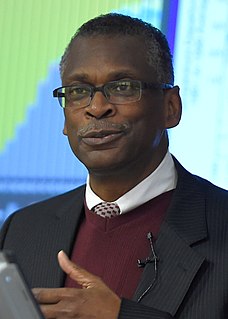A Quote by Jamie Dimon
We do all that [ represent companies], because we have a lot of research in Japanese companies, and that research educates investors around the world. It allows us to sell stocks and bonds in Japanese companies.
Related Quotes
One of the best investors around, Joel Greenblatt, has written a popular, charming and funny book about investing in great companies at low P/E multiples. To simplify an already simple book, great companies are generally measured as companies that can generate lots of profit without requiring a lot of capital. This means that they have high ROEs.
When the trust is high, you get the trust dividend. Investors invest in brands people trust. Consumers buy more from companies they trust, they spend more with companies they trust, they recommend companies they trust, and they give companies they trust the benefit of the doubt when things go wrong.
Drug companies spend more on advertising and marketing than on research, more on research on lifestyle drugs than on life saving drugs, and almost nothing on diseases that affect developing countries only. This is not surprising. Poor people cannot afford drugs, and drug companies make investments that yield the highest returns.
Thinking ahead, in 2013, the Japanese government, together with pharmaceutical companies and the Bill & Melinda Gates Foundation, established a fund for promoting research and development of medical products for neglected tropical diseases (NTDs). The importance of planning for disease outbreaks was made clear with the Ebola virus.
Today's consumers are eager to become loyal fans of companies that respect purposeful capitalism. They are not opposed to companies making a profit; indeed, they may even be investors in these companies - but at the core, they want more empathic, enlightened corporations that seek a balance between profit and purpose.































